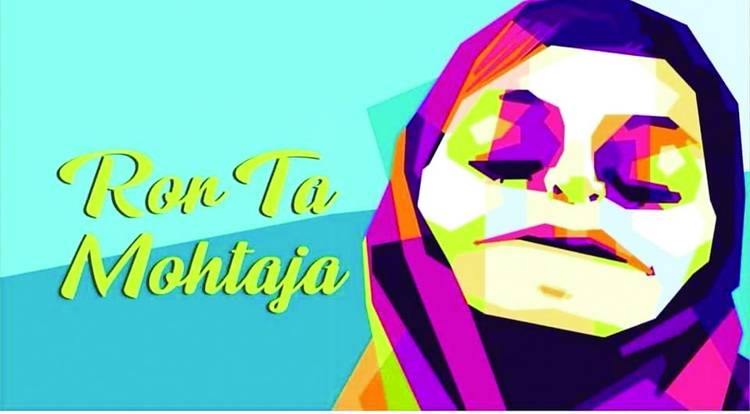
When talking about the resistance of women against multi-faceted oppression, the struggle of Pashtun women and their unique oppression has to be taken stock of in its own right. Pashtun women are not held down through the forces of patriarchy, religion, capital, nationalism alone – but also by a tribal cultural code defined by a notion of “honour”. That cultural is masculine and is maintained by celebration of a fragile insecure manhood which is maintained by unchecked violence. In fact, unfortunately, this unchecked violence against women becomes the hallmark of gender relations in Pashtun society. Things are further complicated when you criticize this particular oppression, because the discussion can be derailed by invoking the political marginalization that Pashtuns face. A regressive, dogmatic and reactionary nationalism, which takes an undue pride in accidents of birth, considers the question of oppression of Pashtun women to be a disservice to the larger Pashtun political cause.
But there always have been local and particular responses by Pashtun women to their particular circumstantial reality. Online spaces have become an extension of social reality. And so, challenges to norms of cultural wisdom can be entrenched there with the hope of subverting the oppressive structures – one niche at a time.

One such attempt is a satirical trope by the name of “Ror ta Muhtaja” (literally meaning: “Dependent on Brother”). That phrase is commonly used in Pashtun society to denote the “proper place” of a woman but here the trope has taken that label and has played with it to expose the inner discrimination and contradictions of a Pashtun household and broader culture. It is run by a woman with an anonymous identity and takes the form of a series of vlogs around 8-10 minutes long.
The main character of the trope is Prot Khan. “Prot” literally means “laying down” and here it points to the laziness of young men who lord over the women of the household, expecting through male entitlement that they will be served at home. It is around their desires, whims, judgements and lens to see the world that the lives of women as protagonists revolve. The mother of Prot Khan forces her daughters to be submissive to his needs and thusthe subjectivity of women in Pashtun society (which is expected to be subsumed in the desire and needs of men of the family) is aptly produced, all with help of video filters and voice-changing software!
The trope involves other supporting characters which subscribe to the set behavioural codes but as you go into the dialogue, the male insecurity and entitlement strike you. This vlog initiative is subverting the insecure Pashtun male masculinity and male chauvinism enshrined in culture, all through the language of humour. Many walk into the trope, thinking of finding cause for laughter with their guards down. And right there, they are confronted with the hypocrisies of traditional Pashtun culture and its particular oppression of women.
Public spaces are highly surveilled in Pakistan, especially in Pashtun society where women can have access only after negotiating a tough set of rules and often constructing a “need” to go out. This has the result of removing women from the imagination. In such a context, the much-needed debates about the place of Pashtun women in society have yet to begin, barring a few exceptions at mobilizations of women here and there. Using online space to claim the right to assert the agency of women, and that, too, in the language of humour is daring example of how creative formulations of resistance can be done.
“Ror Ta Mohtaja” ups the ante in the debate by crossing over to domains which are impossible to question in the reality of Pashtun society. One video in detail mentions child abuse and is effectively Child Safety 101 in how children can know a “bad touch” from an affectionate one and how they have the right to privacy and bodily respect. Such a conversation is hard overall in Pakistan – and in honor-obsessed contexts becomes even harder.
The topic of the emotional abuse of women in marriages is singled out for criticism here. The embrace of suffering expected of women for their marriage receives a regular doze of criticism and mocking from the monologues of Prot Khan’s mother. These among many other imaginative discussions make this initiative one of the first highly effective online attempts by a Pashtun woman to speak from her experience.
The response to “Ror Ta Mohtaja” comes from far and wide. The discussion it has generated shows that the moment for talking about women’s liberation in Pashtun society has come.
Some regressive ethno-nationalists have their usual response to such discussions, but I often think that if they agree with you, you must be doing something wrong! “Ror ta Muhtaja” also points out that it is possible to bring about a change in social, cultural and political consciousness all at the same time. After all, the oppression of women and resistance to it is the most intimate of political struggles. And “Ror ta Mohtaja” is carrying it forward, one mobile screen at a time!
But there always have been local and particular responses by Pashtun women to their particular circumstantial reality. Online spaces have become an extension of social reality. And so, challenges to norms of cultural wisdom can be entrenched there with the hope of subverting the oppressive structures – one niche at a time.

One such attempt is a satirical trope by the name of “Ror ta Muhtaja” (literally meaning: “Dependent on Brother”). That phrase is commonly used in Pashtun society to denote the “proper place” of a woman but here the trope has taken that label and has played with it to expose the inner discrimination and contradictions of a Pashtun household and broader culture. It is run by a woman with an anonymous identity and takes the form of a series of vlogs around 8-10 minutes long.
The main character of the trope is Prot Khan. “Prot” literally means “laying down” and here it points to the laziness of young men who lord over the women of the household, expecting through male entitlement that they will be served at home. It is around their desires, whims, judgements and lens to see the world that the lives of women as protagonists revolve. The mother of Prot Khan forces her daughters to be submissive to his needs and thusthe subjectivity of women in Pashtun society (which is expected to be subsumed in the desire and needs of men of the family) is aptly produced, all with help of video filters and voice-changing software!
“Ror Ta Mohtaja” ups the ante in the debate by crossing over to domains which are impossible to question in the reality of Pashtun society
The trope involves other supporting characters which subscribe to the set behavioural codes but as you go into the dialogue, the male insecurity and entitlement strike you. This vlog initiative is subverting the insecure Pashtun male masculinity and male chauvinism enshrined in culture, all through the language of humour. Many walk into the trope, thinking of finding cause for laughter with their guards down. And right there, they are confronted with the hypocrisies of traditional Pashtun culture and its particular oppression of women.
Public spaces are highly surveilled in Pakistan, especially in Pashtun society where women can have access only after negotiating a tough set of rules and often constructing a “need” to go out. This has the result of removing women from the imagination. In such a context, the much-needed debates about the place of Pashtun women in society have yet to begin, barring a few exceptions at mobilizations of women here and there. Using online space to claim the right to assert the agency of women, and that, too, in the language of humour is daring example of how creative formulations of resistance can be done.
“Ror Ta Mohtaja” ups the ante in the debate by crossing over to domains which are impossible to question in the reality of Pashtun society. One video in detail mentions child abuse and is effectively Child Safety 101 in how children can know a “bad touch” from an affectionate one and how they have the right to privacy and bodily respect. Such a conversation is hard overall in Pakistan – and in honor-obsessed contexts becomes even harder.
The topic of the emotional abuse of women in marriages is singled out for criticism here. The embrace of suffering expected of women for their marriage receives a regular doze of criticism and mocking from the monologues of Prot Khan’s mother. These among many other imaginative discussions make this initiative one of the first highly effective online attempts by a Pashtun woman to speak from her experience.
The response to “Ror Ta Mohtaja” comes from far and wide. The discussion it has generated shows that the moment for talking about women’s liberation in Pashtun society has come.
Some regressive ethno-nationalists have their usual response to such discussions, but I often think that if they agree with you, you must be doing something wrong! “Ror ta Muhtaja” also points out that it is possible to bring about a change in social, cultural and political consciousness all at the same time. After all, the oppression of women and resistance to it is the most intimate of political struggles. And “Ror ta Mohtaja” is carrying it forward, one mobile screen at a time!

